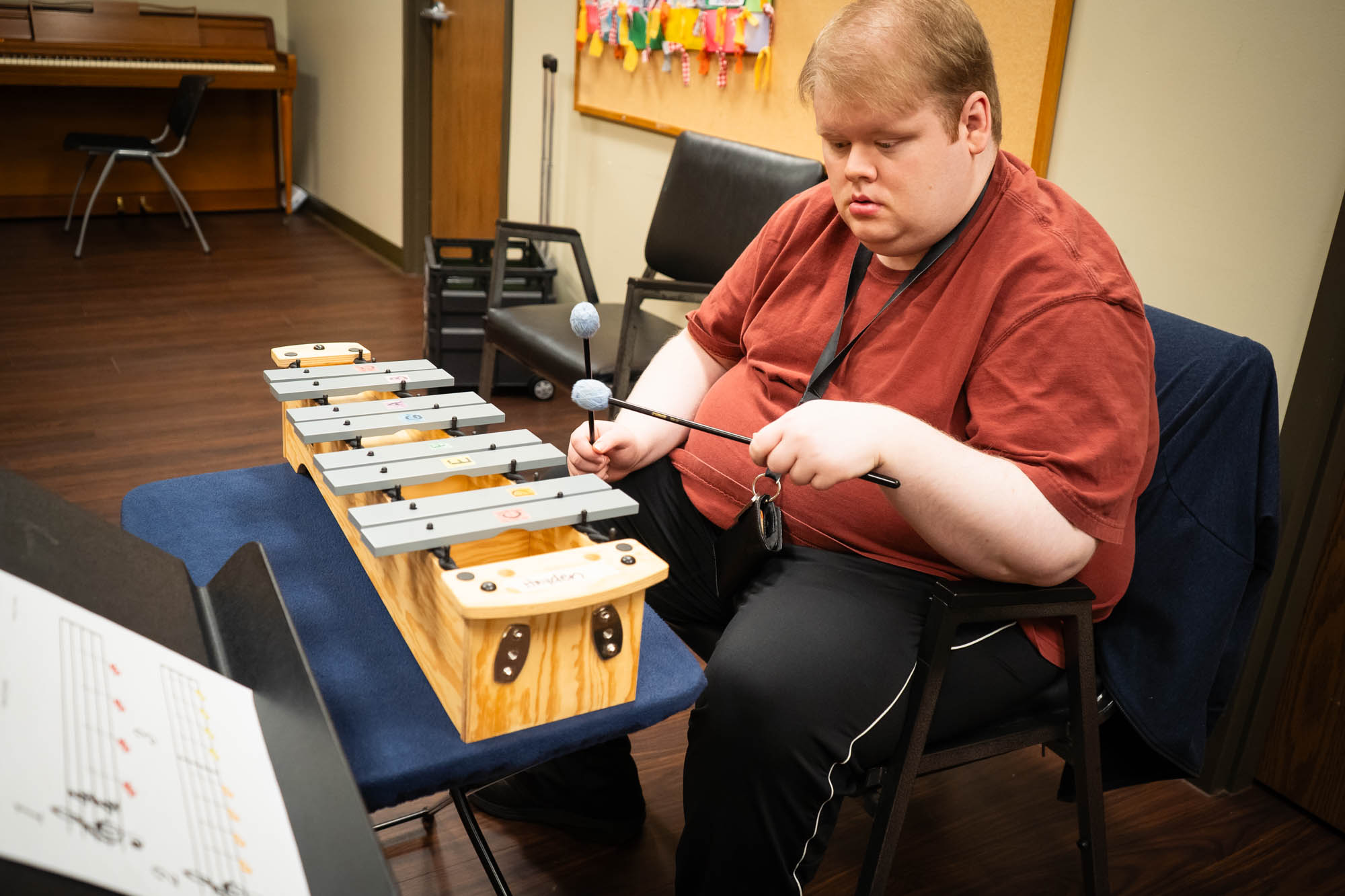Behavior Management, Outpatient Therapy, Music Therapy, Recreational Therapy and Creativity Unlimited programming. These services are designed to provide participants with the skills and support needed to improve their own independence and well-being.

Behavioral Support Services
Hillcroft’s Behavior Support Services utilize a participant-driven team approach to provide support to children and adults with intellectual disabilities, developmental disabilities and mental health concerns.
Behavior Support Services are provided by Behavior Specialists. Behavior Specialists are masters level service providers who have studied in the fields of Social Work, Psychology, or Special Education and have professional experience working with individuals with developmental disabilities. Hillcroft’s Behavior Specialists are passionate about partnering with participants to create an environment that increases the likelihood of success in the areas of work, home, and relationships with others.
The Behavior Support Service process begins with an assessment called a Functional Analysis. The Functional Analysis is used to develop an individualized Behavior Support Plan (BSP). The Behavior Support Plan outlines the participant’s strengths, resources and needed areas of support.
Behavior Support Services are provided through Medicaid Waiver funding. Medicaid Waiver eligibility is determined by the Bureau of Developmental Disability Services (BDDS). BDDS can be reached at 765-288-6516. There currently is a waiting list for new Medicaid Waiver funding services. Hillcroft’s Behavior Support Services are able to begin within four weeks of Medicaid Waiver funding being secured.
If interested in learning more about Hillcroft’s Behavioral Support Services, contact:
LeAnne Cole
Chief HCBS Officer
(765) 284-4166
lcole@hillcroft.org
Recreational Therapy
Also known as therapeutic recreation, this program uses treatment, education and recreation services to help people with illnesses, disabilities and other conditions to develop and use their leisure in ways that enhance their health, functional abilities, independence and quality of life.
A systematic process that uses recreation and other activity-based interventions to address the assessed needs of each individual.
- Improves quality of life
- Increases independence
- Focuses on health promotion
- Improves or maintains physical, cognitive, social, emotional and spiritual functioning in order to facilitate full participation in life
- Promotes person-centered outcomes
- Uses recreational modalities as intervention strategies
- Works with other therapeutic disciplines to provide recreational support to achieve goals
Services provided by a Certified Therapeutic Recreation Specialist (CTRS).
FOCUS AREAS:
- Physical
- Social
- Community Integration
If interested in learning more about Hillcroft’s Recreational Therapy Services, please contact:
Anna Wamhoff
Music & Recreational Therapy Services Coordinator
(765) 284-4166
awamhoff@hillcroft.org
Music Therapy
Music Therapy is an established health profession in which music is used within a therapeutic relationship to address physical, emotional, cognitive, and social needs of individuals. Hillcroft is proud to offer this option to our individuals.
- Clinical and evidence-based use of music interventions to accomplish individualized goals within a therapeutic relationship by a credentialed professional
- Creating music centered objectives to achieve on-musical goals and generalize skills
- Celebrities performing at hospitals and/or schools
- A piano player in the lobby of a hospital
- Nurses playing background music for patients
- Artists in residence
- Arts educators
- A high school student playing guitar in a nursing home
- Use of music to improve or maintain functioning the following areas:
- Motor functioning
- Psychological
- Social or Emotional
- Sensory
- Communicative
- Cognitive functioning
- Trained music therapist selects music (songs, interventions, instruments) to personally reflect clients, thus creating an individualized treatment experience
- Access an individualized cognitive, emotional, and physical functions simultaneously- a whole brain process
- Works with medications and other therapies to gain faster results with an enjoyable experience
- Clinical and medical research backed results- observable, identifiable, measurable, and predictable outcomes
- Improve:
- Self image and body awareness
- Fine and gross motor skills
- Auditory perception
- Increase:
- Communication skills
- Ability to use energy purposeful
- Interaction with peers and others
- Attending behavior
- Independence and self direction
- Reduce maladaptive behaviors
- Enhance emotional expression and adjustment
- Stimulate creativity and imagination
- Referral
- Self, family/caregiver, team member/professionals, etc. may refer individuals
- Assessment
- Formal assessment completed upon beginning treatment
- Treatment Plan
- Develop formal goals and objectives
- Implementation
- Documentation
- Music therapists work with other therapeutic disciplines to provide musical support to achieve goals
- Music therapy with BCBA
- Music therapy with occupational therapy
- Music therapy with speech therapy
- Music therapy with physical therapy
If interested in learning more about Hillcroft’s Music Therapy Services, please contact:
Anna Wamhoff
Music & Recreational Therapy Services Coordinator
(765) 284-4166
awamhoff@hillcroft.org


